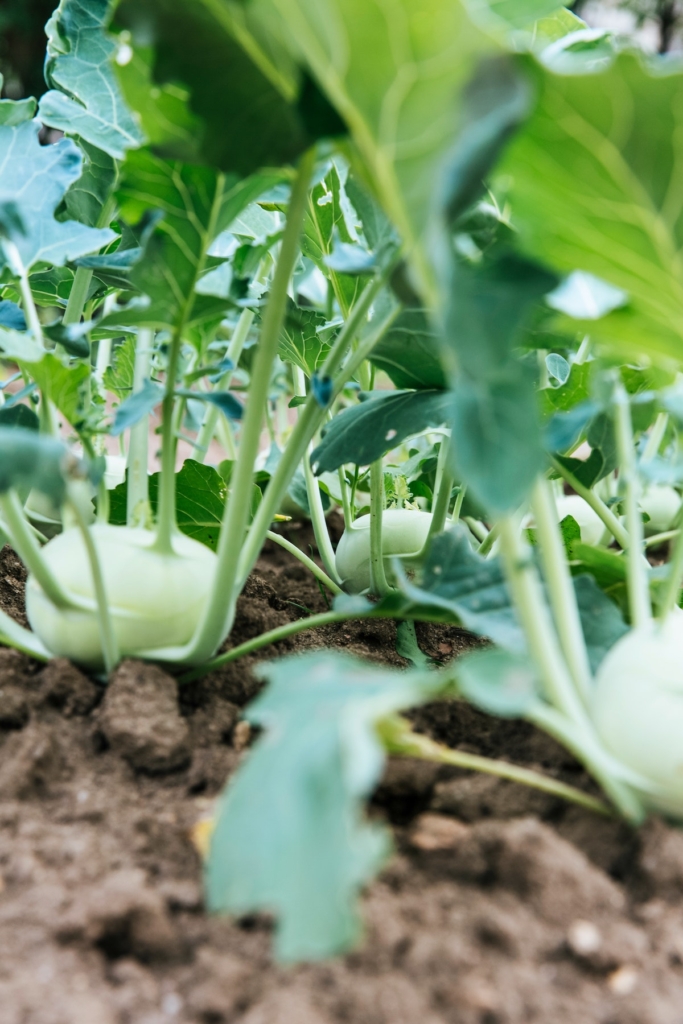5 WAYS TO START EATING MORE MINDFULLY
And Why You Should

Let’s be honest – this past year has been one for the record books. Between the stress of living through the ups and downs of a global pandemic to the anxious unknowns of the Work- From- Home life, many of our healthy habits and routines have gone out the window.
For some who wish to boost their mental health, the art of practicing mindfulness has become a new practice. By tapping into the power of focusing on one’s breath and reducing the amount of distraction in our world, we can draw ourselves into a place of peace and calm – even in the most stressful moments. Mindfulness has been shown to lead to reduced stress, anxiety, and even the effects of depression when practiced daily.
While mindfulness can be great for one’s mental health, what if there was a way to bring the benefits of this mindset into our daily diet? Luckily, with a little bit of help from the wisdom of ancient eastern medicine, the art of mindful eating can revolutionize how we approach our food.
While the art of informal mindfulness can be hard to keep up in the midst of daily life, by adding several mindfulness techniques to your eating routine, you can begin to quickly enjoy the benefits of eating with purpose rather than simply for survival. Not only will mindful eating help you better choose and regulate what goes into your body, you will also begin to enjoy what you eat more often.
Here are our top five tips for how to begin eating mindfully:
5 Tips For Bringing Mindfulness To Your Eating Habits
 1) Slow Down & Find Body-Mind Balance
1) Slow Down & Find Body-Mind Balance
Have you eaten a delicious meal, only to uncomfortably admit “I ate way too much!” once your plate is empty?
You may be surprised to discover that our bodies send a chemical signal that we are “full” much faster than our mind tells us we should stop eating. In fact, for the average individual, a satiation signal comes almost twenty minutes after the body is full! This is why we often find ourselves overeating – falling victim to the “my eyes are bigger than my stomach” syndrome.
The trick to staying mindful of how much we are eating is to simply slow down. Seeing our body and mind as two parts of one equal body can help us find a healthier balance in all of our daily routines – especially vital ones such as eating.
In the same way that mindfulness meditation utilizes intentional slowing of the mind, body, and soul to center oneself, slowing down while eating is one of the best ways to ensure that your body and mind get in sync. By slowing down our eating and enjoying our meal more slowly, we can allow our body’s natural satisfaction signal to reach our minds before we gorge ourselves.
2. Learn Your Body’s Unique Signals
 Growing in your ability to eat mindfully begins when you study your entire body. Getting to know the signals that your body sends to your mind, and vice-versa, is the first step to ensuring that you become mindful of your behaviors and actions.
Growing in your ability to eat mindfully begins when you study your entire body. Getting to know the signals that your body sends to your mind, and vice-versa, is the first step to ensuring that you become mindful of your behaviors and actions.
Begin by asking yourself this important question: Am I responding to a desire to eat merely out of an emotional desire triggered by an emotion, or does my body need nutrients and sustenance?
In our world where food is at our beck and call, we often find ourselves giving in to our mind’s emotional desires for food as a comfort. Emotions such as stress, frustration, loneliness, sadness, and more can create triggers that eating deceitfully promises to appease.
Our body signals can tell us more than how much to eat. If we pay close attention, we will start to learn what resonates with our bodies.
Instead of just eating because we want to, the mindfulness practices from eastern wisdom calls us to learn more about our body’s true needs. Are you feeling lightheaded? Is our energy level low when it should be high at this time of day? Understanding what your body needs biologically can help you make more mindful decisions on when and what to eat.
3. Create An Mindful Environment
 How often do you find yourself mindlessly wandering through your kitchen, opening cabinets and searching through the refrigerator looking for something to snack on – even when you aren’t hungry?
How often do you find yourself mindlessly wandering through your kitchen, opening cabinets and searching through the refrigerator looking for something to snack on – even when you aren’t hungry?
In the West, we often build our home environments around those things that bring us comfort and peace. For some, it is pointing the seating in our home toward the television. For others, it’s creating a large kitchen that keeps food within arm’s reach at any moment.
How mindful are you about your environment when it comes to eating? Does your home, car, and office make it easy for you to create habits for snacking when you don’t need to? Or are you intentional about creating spaces that are designated specifically for eating the right food at the right time?
For some, creating a mindful environment may look like planning to only eat when seated at a true table, and when it is possible to share food with friends and family. Others may choose to develop their kitchen area to nurture community and gathering as a ritual rather than simply a utility for stuffing one’s face!
Being intentional about your environment can help you create an equilibrium in your life that extends to the vital corners of your day. Taking the time to invest in your surroundings and family members can change how you live and interact with everything!
4) Dig Deeper Into Your Soul’s Motivations
 Have you ever heard the adage “A minute on the lips, a lifetime on the hips?” While we may love foods that are tasty for our souls, they may not be the best for our bodies. This is the tricky balance that mindful eating can help bring to our lives. While there isn’t anything inherently wrong with snacking on foods that are less than healthy, what if you could change your perspective and find joy and comfort in food that is better for your mind, body, and soul?
Have you ever heard the adage “A minute on the lips, a lifetime on the hips?” While we may love foods that are tasty for our souls, they may not be the best for our bodies. This is the tricky balance that mindful eating can help bring to our lives. While there isn’t anything inherently wrong with snacking on foods that are less than healthy, what if you could change your perspective and find joy and comfort in food that is better for your mind, body, and soul?
When you borrow the concepts of eastern mindfulness, you can begin to learn how to determine those soul motivations that create the longing for comfort foods. When you see that the satisfaction comes more from meeting a deep need than eating that tasty treat, you can replace those urges with foods that are healthier and satisfying!
5. Cultivate A Deeper Connection With Your Food
 Here’s a question: Do you see your food as a means to an end, or as a product that has traveled to your plate?
Here’s a question: Do you see your food as a means to an end, or as a product that has traveled to your plate?
In our modern world, we don’t often give much thought to where our food comes from. Rather than living as hunter-gatherers who travel great distances to farm or hunt food, we live more disconnected from our daily diet than ever before. Often, we don’t even consider what exists inside the package we pick up from the store each week!
When we pause to consider where our food has come from, we practice a type of mindfulness that leads us to become wise about the choices we make each day. This mindfulness connects us to our natural world, helping us appreciate the process that it takes for our food to reach our plate. Consider all those people and processes involved in planting, harvesting, preparing, packaging, and stocking our food on the shelves of our favorite stores.
Imagine the hard work and dedication of each person that made it possible for you to enjoy your meal. In doing so, you will find yourself selecting foods that help create sustainable jobs for millions of people around the globe, and will find yourself investing more time and resources selecting the best kinds of food for yourself and your family. Now that is a way to truly center yourself as part of the greater global food chain!
The ancient wisdom of Eastern Medicine has much to teach us in the practical ways we live our lives. There is a reason why so many individuals throughout time have enjoyed lives of peace and tranquility by taking part in practices that encourage balance – including our daily meals. When we eat with mindfulness, we can redeem the time we spend eating to invest in ourselves and those around us!
Newer
4 Surprising Signs Your Immunity Is Low
Older
The New Definition of Wellness: Combining Traditional & Modern Medicine
Comments (0)
Leave a reply
You must be logged in to post a comment.




